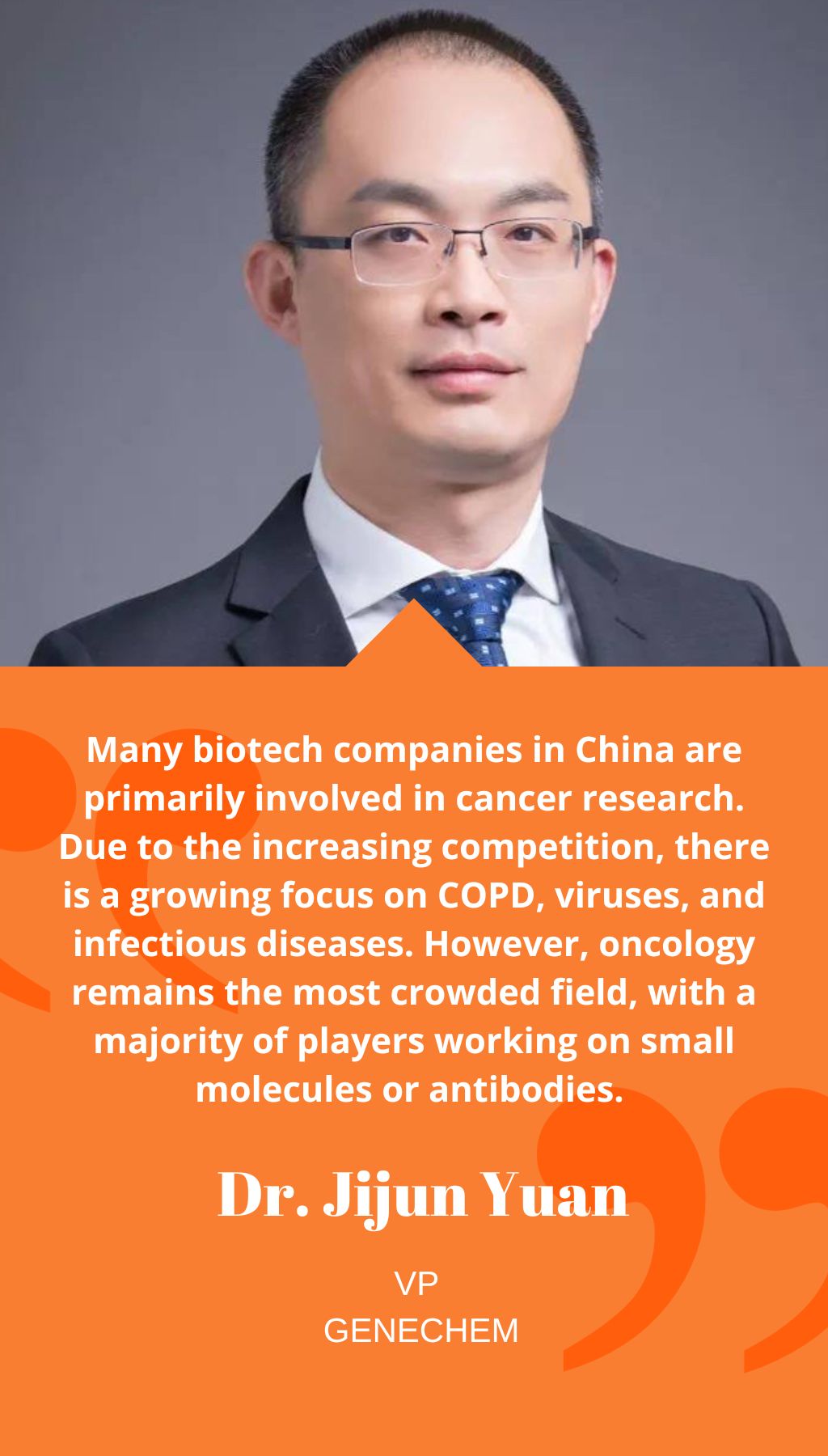
- China | 6 July 2018

Genechem was founded in 2001 and has been collaborating with physicians to meet their research needs as a CRO. Can you highlight the company’s key focus today?
Certainly. Our main focus area is oncology. Through our collaboration with doctors, we aim to discover any technologies or novel drug targets that can be identified through the combined expertise of medical biology, cell biology, and immunology experts working together. Two years ago, when I joined Genechem, we made the decision to intensify our own drug discovery activities. Our technology is based on anti-virus cells, and we have a strong emphasis on cell and gene therapy, as well as therapeutic antibodies. While our ultimate goal is drug discovery, we will continue to work as a CRO alongside doctors.
How does Genechem’s strong relationship with doctors influence its research efforts?
Our close relationship with doctors allows us to better understand the areas within the medical field that require improvement. We utilize our technology, knowledge, and combine it with their experience to develop innovative methods to address these needs. In pursuing this objective, doctors are often involved in the early stages of research but may lack the financial resources or energy to fully develop their ideas. Through our collaboration with doctors, they can out-license their ideas or work with us to develop and advance the project into a marketable product.
Can you provide more insight into Genechem’s project pipeline?
Our key project revolves around a first-in-class target that a doctor has been working on for the past 10 years. Based on clinical trials, we know that the antibody is highly specific for gastric cancer. Genechem has invested one and a half years in determining the target, including antibody humanization and development work. We presented the data last year at AACR (American Association for Cancer Research) and have since demonstrated that the efficacy and safety data are very promising. Currently, we are seeking conversations with global pharmaceutical companies to explore potential collaborations. While our company has the capabilities to conduct R&D and phases one and two, we require additional resources to advance further.
What trends have you observed in terms of the focus of research efforts in China?
Many biotech companies in China are primarily involved in cancer research. Due to the increasing competition, there is a growing focus on COPD, viruses, and infectious diseases. However, oncology remains the most crowded field, with a majority of players working on small molecules or antibodies. Genechem’s approach is centered around cell and gene therapy, which is not an area that many in China have ventured into. Therefore, we are utilizing CAR T-cell therapy as our differentiating angle.
What advantage does Genechem gain from taking this approach?
While our work is high-risk, if we find something valuable, the potential impact can be significant. China has a large patient population and ample samples that, if utilized correctly, can contribute to substantial developments within the industry. Cell therapy is still in its early stages, similar to where antibodies were 10-15 years ago. In China, cell therapy presents an opportunity for local players to perform at the same level as global pharmaceutical companies. When looking at clinical trials, cell therapy trials in China are comparable to those in the U.S., which is not the case for small molecules, for example. CAR T therapy heavily relies on identifying the target, and our strong relationship with doctors and access to samples provide us with a great advantage in screening and finding novel targets.
What is your outlook on the future of the pharmaceuticals industry in China?
In the past, there was a strong emphasis on the “me too” model in project pipelines. However, we are now witnessing a shift towards best or first-in-class projects. There is a new sentiment within the Chinese pharmaceutical community that emphasizes the importance of innovation for survival. Many companies are aiming to list on NASDAQ or Hong Kong, which further demonstrates the high level of innovation we are currently witnessing in China. We believe this is just the beginning of an innovation period, and based on the progress made in the past 5-10 years, China is poised to become a powerhouse in the global pharmaceutical industry. With a large patient population, abundant samples, and strong support from national funding, we have the necessary resources to compete on a global scale.














